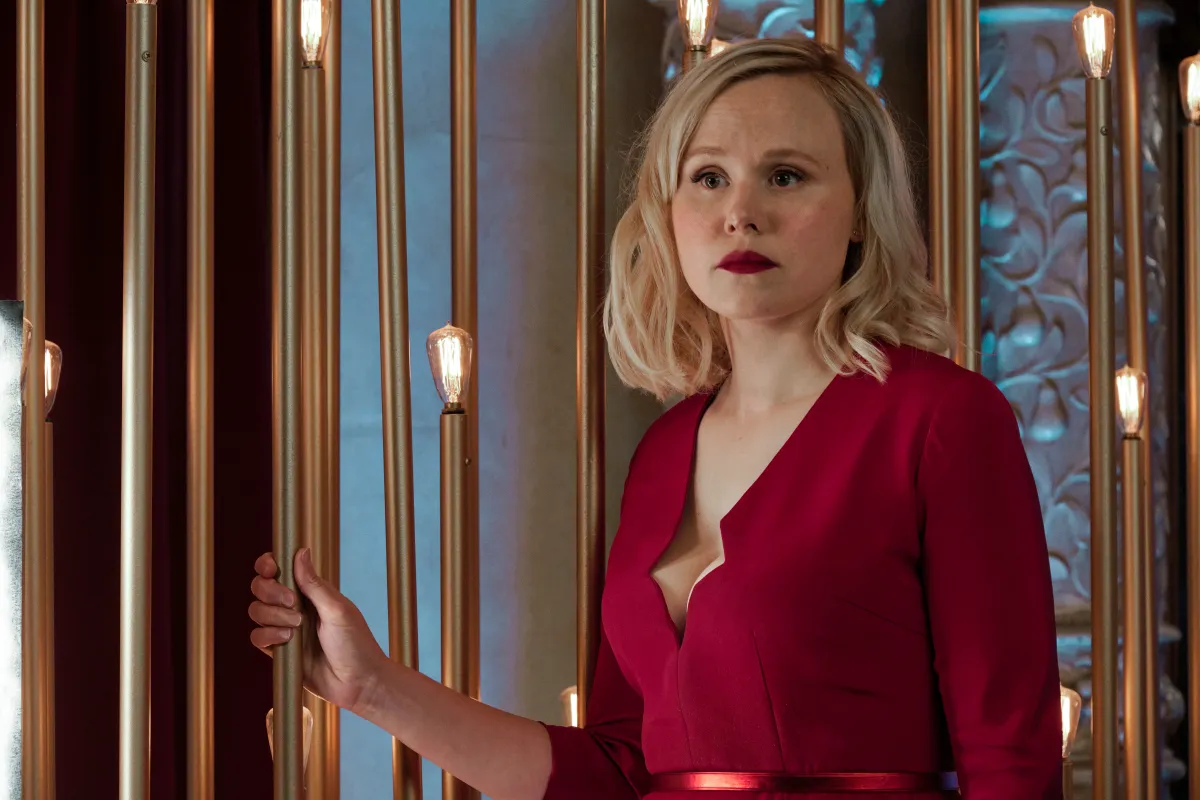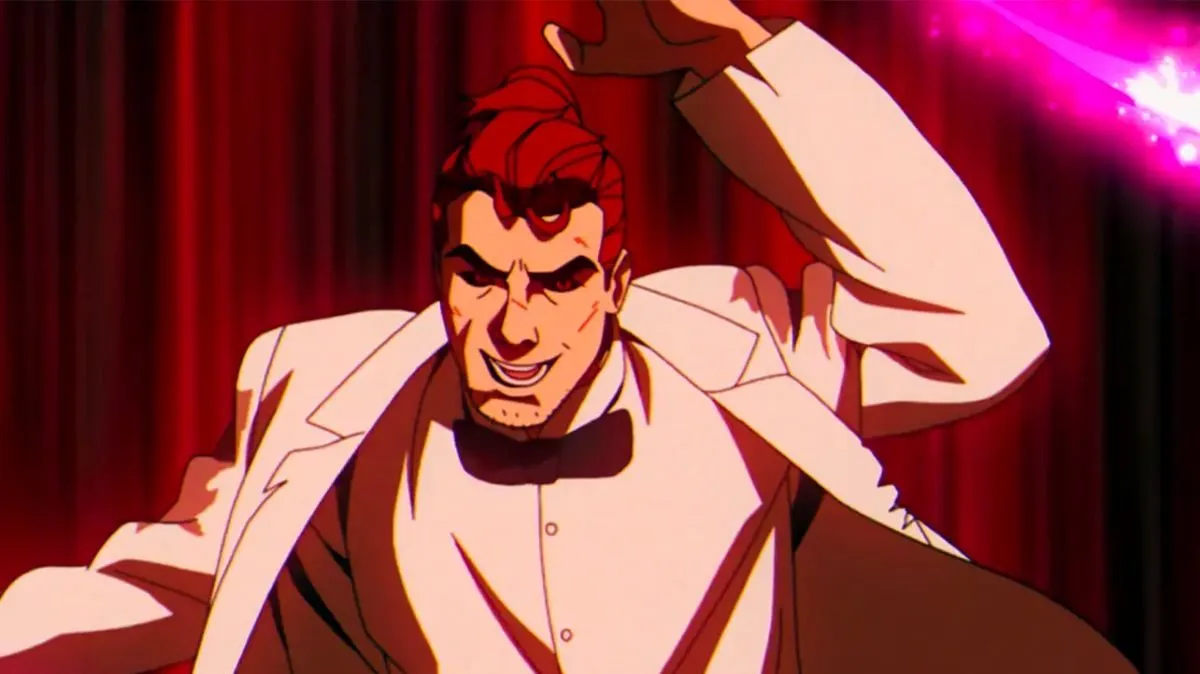Sometimes, when writing one post about Star Trek: Picard, I’ll go down a Star Trek-centric rabbit hole that will lead me to from one idea to another. Recently, I came across a couple of articles about one of my favorite characters, Agnes Jurati (Alison Pill). It seems that a lot of folks out there don’t seem to understand the character the same way I do!
** SPOILERS for Star Trek: Picard, Seasons 1-2**
**CW: discussion of abusive relationships**
The first post I read was one from the Women at Warp blog. I didn’t agree with writer Regina Peters’ assessment of Agnes Jurati in her piece, “Agnes Jurati Deserved Better.”
In her post, Peters talks about the Picard Season 2 storyline where a desperate La Sirena crew find and imprison the Borg Queen (the late, great Annie Wersching), because they need her help to get back to their home universe. Jurati bravely allows the Borg Queen to enter her mind in order to help the crew, but the Borg Queen eventually takes residence in Jurati’s body permanently.
Peters likens this to an abusive relationship, and tracks Jurati’s and the Borg Queen’s bond through a guide to recognizing the signs of an abusive relationship published by ReachOut.com. The five signs she discusses are:
- “They try to control where you go and who you see”
- “They isolate you from family and friends”
- “They say things like, ‘No one else will want you.’”
- “They deliberately break things that you value”
- “They harm you (…) or your family”
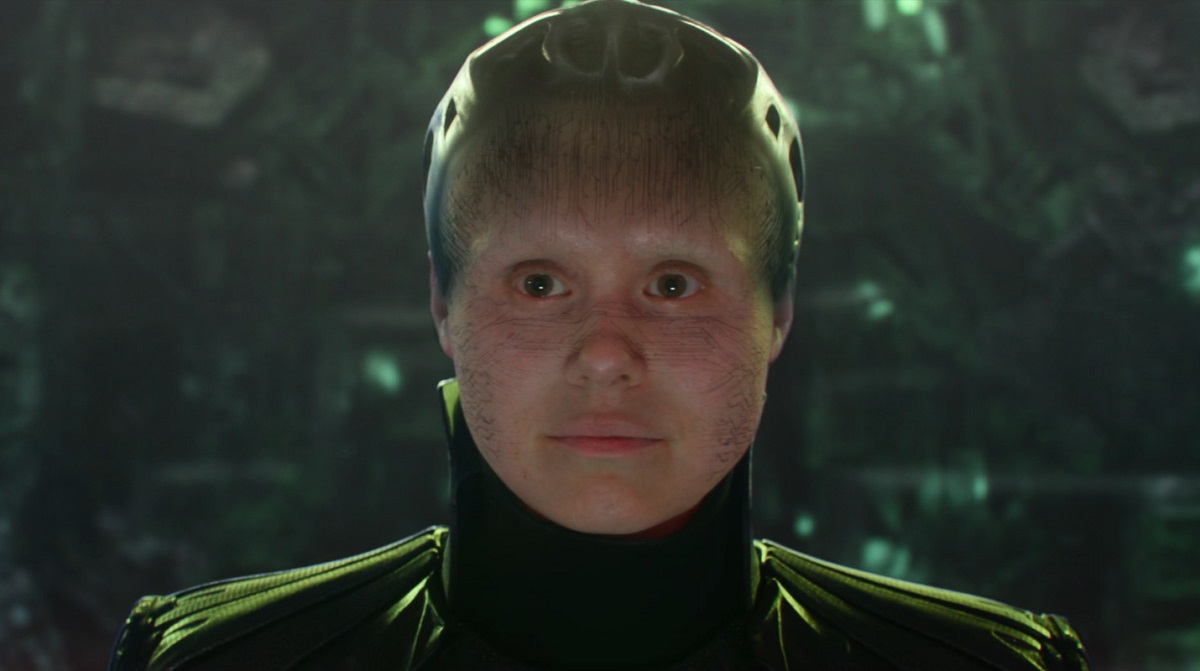
My biggest issue with Peters’ assessment of the situation is what she says about Jurati’s ultimate decision to allow the Borg Queen to keep her body, becoming the Borg Queen. In her words:
“Jurati’s justification for letting the Queen stay in her body is that they are both lonely and can keep each other company. Also, Jurati believes, and convinces Starfleet, that after losing her Collective and being defeated in the alternate timeline, the Queen has gone through a paradigm shift and is ready to change. The problem is that many people in the real world believe this about their abusers too. People can and do change for the better, but the Borg hive mind is already established as an addiction almost impossible to break.”
I think Peters misunderstands who Agnes Jurati was before she encountered the Borg Queen.
Agnes Jurati isn’t “hard to pin down”
In a post from Collider, writer Monita Mohan says that Picard “failed” Agnes Jurati, because she’s written unevenly. Specifically, Mohan explains, “[We’re] told that Jurati gets along better with synthetic and artificial beings, not people, even though she seems very close to her teammates on La Sirena. And, from the moment the Borg Queen enters the fray, she relentlessly taunts Jurati for being insecure, lonely, and unloved. But, is any of that really true?”
She concludes this train of thought by stating, “Agnes Jurati’s personality has been hard to pin down.”
Has it, though? Just because someone is “bad with people” doesn’t mean they never form relationships ever. In fact, it tends to make the relationships they do form all the more special, because of how difficult they were to build in the first place.
It isn’t that Jurati doesn’t want relationships with fellow human beings — it’s that she doesn’t feel like she fits in, which affects how she relates to others.
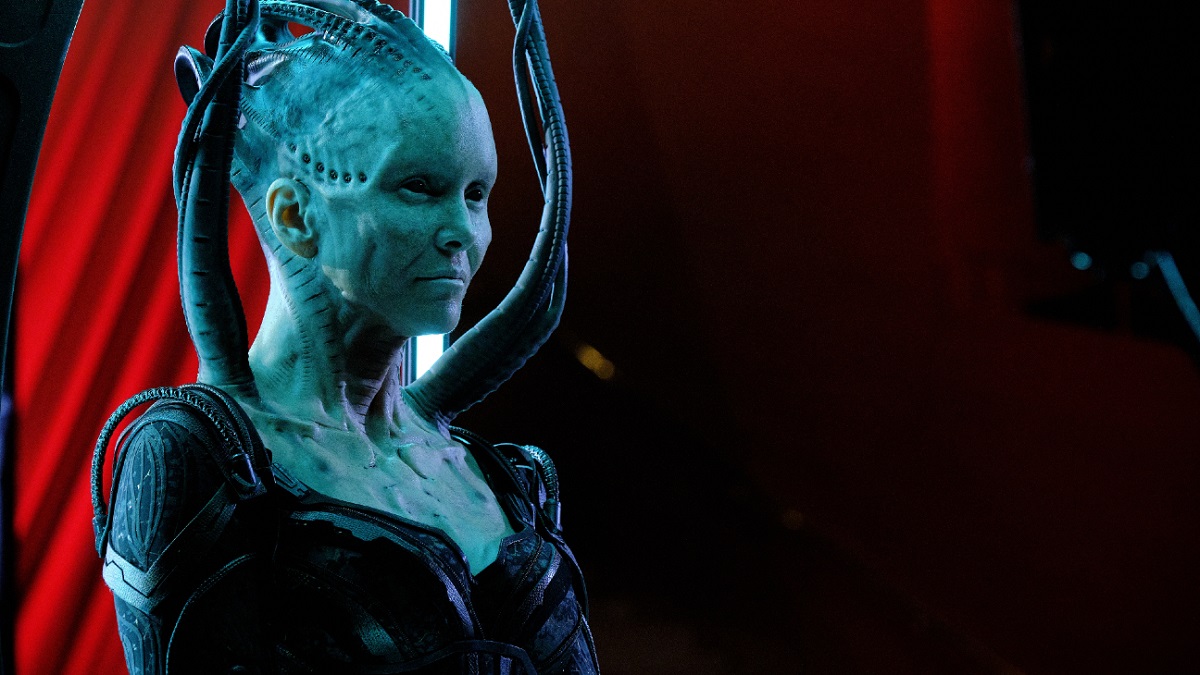
The Borg are antagonists, not “villains”
Rachel Carrington at Fansided extended her criticisms of Picard‘s writing beyond Jurati to the Borg Queen. Clearly, Carrington likes the Borg Queen as an uncomplicated villain, going so far as to say that she’s “evil to the core and cannot be trusted.”
Deeming the Borg Queen “evil” simply for being what she is (not just Borg, but the Borg) is the least Star Trek way to see an antagonist. Is she dangerous? Absolutely. Do I understand why someone who’s experienced trauma at her hands wouldn’t trust her? Yup.
But, she’s Borg. Assimilation is how the Borg reproduce and evolve. It’s how they stay healthy. It’s a spiritual practice for them, too, in that they are aiming toward their idea of perfection. And they’re doing so by bringing together the best of other species. It’s the lack of informed consent from the assimilated that’s the problem.
The Borg Queen Picard and his crew found in the alternate timeline created by Q had been separated from the Collective, and the Collective had been destroyed entirely. She is a desperate creature on the verge of death who can’t function properly. Her desire for self-preservation isn’t “evil,” it’s natural.
But she’s also spent an unspecified amount of time as an individual. It’s unclear how long the Confederation had been keeping the Borg Queen prisoner, but the effects of solitude were apparent.
Her desire to stay alive and preserve her species doesn’t mean that she wouldn’t also have feelings creep up. Feelings that would allow her to want to connect with someone who feels as empty as she does, but lives life that way and knows how to handle it (sort of).
Jurati is pretty straightforward
During the first two seasons of Picard, everything you need to discern the why of Jurati’s actions and choices are plainly spelled out. One might not relate to her reasons, but that doesn’t make them “inexplicable.”
Jurati’s fascination with synthetic life:
- When she first meets Picard, she’s clearly in love with her work, and is visibly sad knowing she didn’t get to meet Dahj.
- Later, when she meets Soji, she remembers what brought her joy about synthetic life in the first place and assures Soji that now that she’s met her, she would never try to kill her.
- Jurati consents to a mind-meld from the android, Sutra (which she didn’t have the chance to do with Commander Oh). This is the first time she allows a synthetic life form into her mind.
Jurati loves people, despite not understanding them:
- While she is fascinated by synthetic life and wants them to survive, she loves humanity and helps Picard and Soji to prevent the destruction of organic civilization.
- Soji calls Jurati out when they first meet. Soji asks her point-blank whether she sees Soji as a person, and Jurati doesn’t answer.
- After killing Maddox, Jurati confides in Rios that she feels “hollow, hopeless, lonely, afraid” before she sleeps with him.
- Her relationship with Maddox makes sense, in that they shared a passion for synthetic life.
- She apologizes to the crew saying, “You all are the closest thing I’ve had in a long time, maybe ever, to having a…crew. Sorry I had to f***ing ruin it.”
- At the top of Season 2, when her relationship with Rios is over, she’s getting drunk at a party and is bad at handling someone flirting with her.
- When she argues with Rios about their break-up and he complains she can be intimate with synthetic beings but not with human, Jurati deflects, but doesn’t disagree.
Just because Jurati is jazzed by synthetic life and understands them better doesn’t mean she doesn’t want to connect with human beings. She craves human connection, but she’s bad at it.
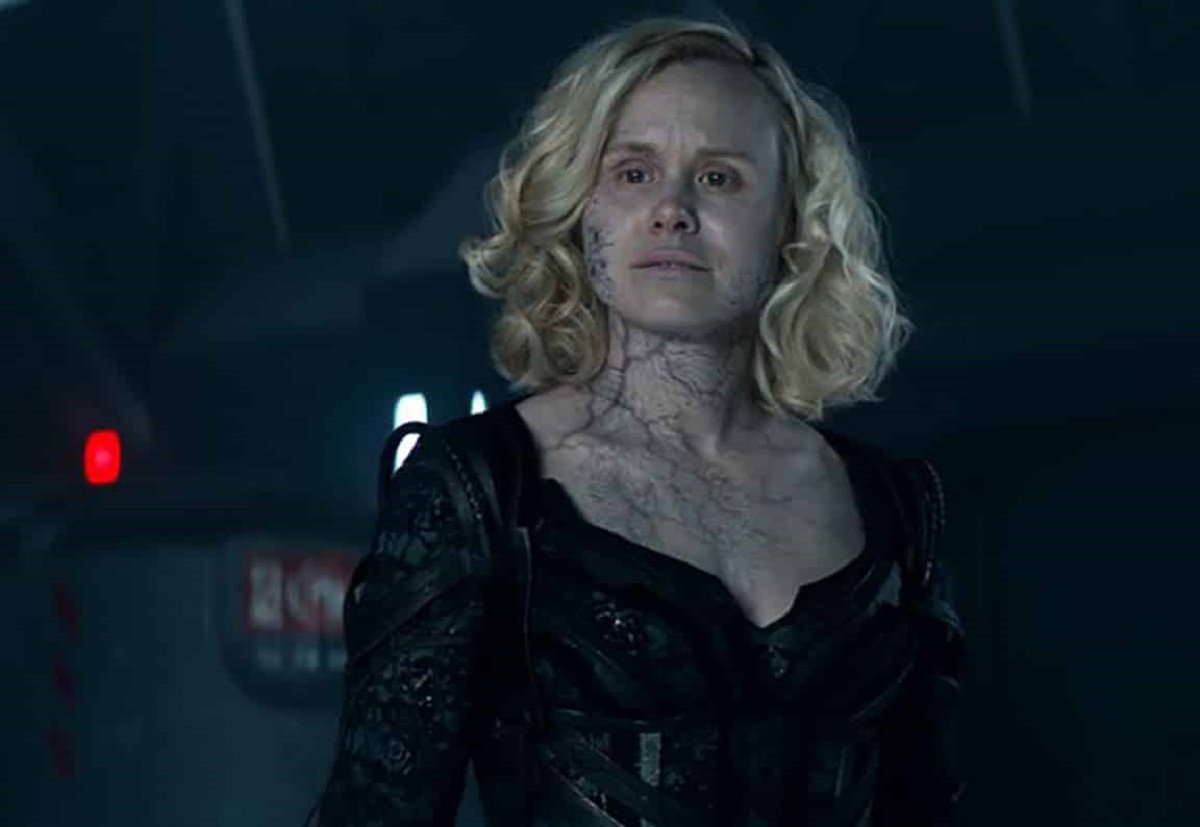
Jurati’s erratic behavior makes sense:
- Oh forcing the vision of the Admonition on Jurati while also administering a psychic block so she couldn’t talk about it made connecting to other organic beings, which was already hard for her, even harder.
- She tells Picard that Commander Oh came to see her, but omits the Admonition, being given a tracker, and her “mission” to kill Maddox and Dahj’s twin, Soji. She’s a capable liar, but only goes to these lengths when she believes she’s doing the right thing.
- Eventually, she feels so guilty about putting the crew in danger, she injects herself with uranium hydride to neutralize the viridium in her tracker.
Hiding her “secret mission” was as emotionally taxing as seeing the Admonition. These mixed, intense feelings make erratic behavior understandable.
Jurati’s consistent fascination with the Borg:
- When talking to Picard about his assimilation in Season 1, Jurati breathlessly names everything the Borg did to him. She then brings up the idea that the deactivated Borg cube has been cut off from the Collective and is under Romulan control. She says of the Borg still on it, “Maybe they’ve changed.” As far back as Season 1 Jurati had hope when it came to the Borg.
- When the Borg appear in Season 2, Jurati stresses that this situation is unique. The Borg as the Federation knew them have been decimated. She argues for a different approach, saying, “We could be putting a bullet into the greatest ally the Federation may ever know.”
- When it first looks like the Queen might assimilate Jurati, it’s established visually that Jurati is still present (in the mouth of the Borg Queen) and the Queen is present in Jurati’s mouth. Picard tries to disconnect them, and Agnes’ body puts a hand up to stop him. When he asks whose hand is stopping him, both voices say, “Mine!” Neither the Queen, nor Jurati, wants to separate.
“Borgati” is Agnes Jurati at her most human
From the beginning, Agnes Jurati has been good at synthetics, bad at humans. She’s also been fascinated by and hopeful about the Borg. She sees a possibility there that she doesn’t see in synthetics or organics — she sees strength in the blending of the two.
Jurati shows no indication of believing that to be true for all organic life, which is why she presses on the Borg Queen that consent is a must. But, in joining with the Queen, Jurati saw the value in what the Borg have to offer her.
Here’s a woman who has historically been terrible at relating to people. Speaking to them in a way she understands through a Borg body allows her to connect with humanity more than she was able to before.
It struck me as similar to a neurodivergent person “unmasking.” As a Borg, Jurati doesn’t have to “do the dance.” She can express herself in a way that feels right while still communicating with, and showing love for, organic life.
This isn’t Jurati being a victim. This is Jurati being a hero. And also being her truest self.
(featured image: Paramount+)



